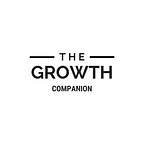Create A Career Development Plan In 3 Steps
It might not take you terribly long to land a suitable job… But developing your career is something that will affect the rest of your life. Career development isn’t easy, but the benefits are enormous.
Most everyone wants to advance in their career, but few really know how to make that advancement a reality.
For the purpose of this article, let’s define career development as building a habit to be happy in your career on a daily basis. As you might expect, this won’t happen instantly, or even in a few months. It could take years of effort to really get to where you want to be. That’s why it’s important to be realistic about your goals, as well as the process of identifying them and implementing them. Staying organized is also key… Use Career Companion to keep track of your career values, assets, and contacts.
At the same time, you should be excited about the process! After all, this is all about you doing what makes you happy, so getting there should be just as fun and rewarding. And remember, work is much easier and life is much better when you’re in a career that you love.
Here are the three steps to creating your career development plan.
1. Identify your skills.
Identify your top competencies, strengths, demonstration situations and high point stories. These could be anything from your leadership skills to a specific moment you feel really exemplifies your professionalism and talents. Every job requires different behaviors and skills, so knowing your various strengths will help you identify which ones to highlight for certain jobs.
You should also become very familiar with your strongest skills, so you’ll be able to articulate them succinctly and professionally. Whether on a job interview, resume, or job application, you’ll want to be able to express your skills and strengths with ease and confidence. Knowing your skills will also help you understand what jobs you want or are qualified for, so you’re only applying to jobs that are right for you.
2. Use your accomplishments to your advantage.
Whatever you’ve accomplished so far in your career, it’s important to be vocal about it! Highlight your accomplishments in your cover letters, resumes, and interviews. This will give hiring managers and future employers a sense of you in action. This is also where your high point story comes in. Think about a story that exemplifies a strong point in your career, that shows your skills, accomplishments, and abilities. Your story should illustrate a contribution that you made to something that had a positive outcome.
Employers want to feel confident that they’re hiring someone who can take on challenges and shoulder burdens in the company. So don’t be afraid to show off your accomplishments and high point stories to prove you can be that person!
3. Keep learning and developing new skills.
Your career plan is all about finding the best career for you. And sometimes your desires or interests can change. The best way to stay on top of your skills and passions is to keep learning!
Not only will learning more help you discover what you want, but it will help you develop new skills that will make you desirable to employers, as well as more qualified for whatever career you choose.
Attaining new skills, applying new concepts, updating established skills is an absolute necessity to succeed in today’s work force. Some of the most successful people are continuous learners. They’re constantly attending seminars, taking classes, reading books and articles, or anything they can to keep learning and developing new skills.
In addition, people are job-hopping much more today than they ever were before. According to the U.S. Bureau of Labor Statistics, the average person will have held 10 jobs by age 40… And that number is likely higher for millennials, who stay in their jobs an average of only three years. Staying on top of learning new skills and concepts will help keep you sharp and ready for taking various jobs over the years.
You may consider career development planning as something college students do their senior year. But developing your career plan can and should be done throughout your lifetime, as a way of making sure you’re on the right path for you. Career planning can help you find solutions to your needs at any time in your life, whether you’re just entering the workforce or thinking about a career shift twenty years in to your career.
Developing your career is a process, so don’t worry if you find your interests shifting or you start feeling a bit lost. If you follow these three steps, you’ll always be on the ball and ready to follow your career path to the best of your ability.
Sick Of Applying For Jobs And Never Hearing Back?
Career Companion has created a career success kit to help you stand out in the pile.
